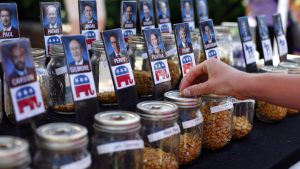
The post below was kind of a set up, because there are so many things like that, and so many things like that are related climate change.
For example, why so many people continue [broken record alert] to buy expensive cars and live so far from work despite the misery eventually produced by both, not just at present, for a very long time now. And yes, these two things are prime exacerbating factors driving climate change and making it worse, inducing despair in those who cannot fathom giving up large vehicles or exurban living and rage against suggestions they consider it. See also, over-crowded ‘lakefront’ developments, especially in the American south, with accompanying overpopulation of large boats and jet skis. If the taste for these things is no longer based on pleasure or necessity, we must unpack. Bourdieu is very helpful here.
Another one – how climate patterns influence where people live and work:
Among the mass migrations in U.S. history: after the Second World War, people left cold Snow Belt states in the Northeast and Midwest for the warmth of the southern half of the country. Americans are still moving south in large numbers, but new research documents some growing appreciation of colder parts of the country due to climate change.
Marketplace’s senior economics contributor Chris Farrell has been looking into this. He spoke with “Marketplace Morning Report” host David Brancaccio. The following is an edited transcript of their conversation.
David Brancaccio: All right, just remind us, 1950s and ’60s in particular — it was from the Snow Belt to the Sun Belt.
Chris Farrell: That’s right, there were a combination of factors. Millions of retirees, they were just fed up with the cold. They went for the warmth and recreational activities of the Sun Belt. Defense companies rose alongside military bases in the region. Established northern industries looking for cheap, nonunion labor shifted operations south. Agricultural businesses boomed, thanks to new farming techniques. So if you take a step back, David, newcomers were attracted by the region’s low cost of housing, the growth in job opportunities, low taxes and warm weather. And the widespread adoption of new technologies like air conditioning made the hot climate bearable.
So…. to bring it all together, that was broadcast on a radio program. What if you were listening to that report on your commute in your large automobile? Does it spark… anything? Bueller?

